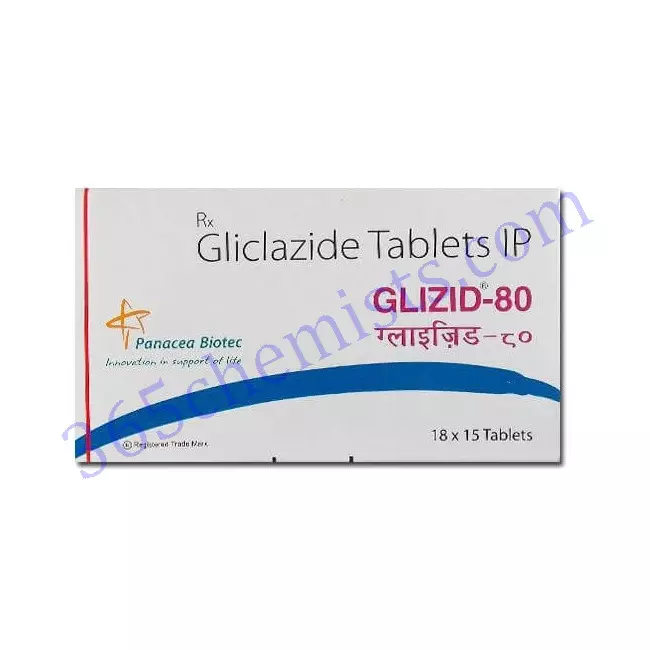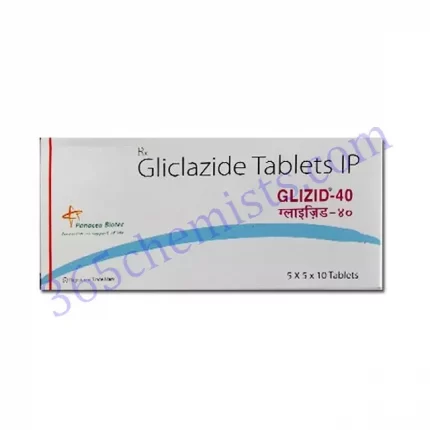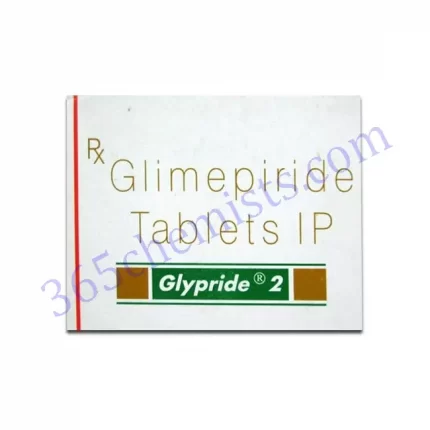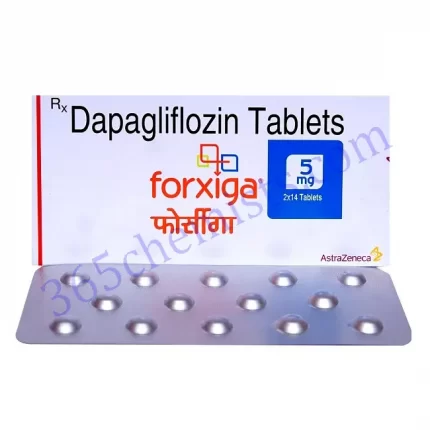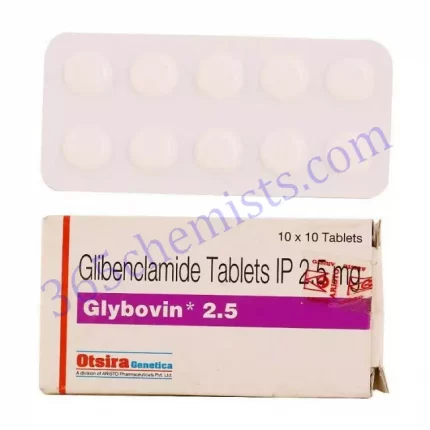Glizid 80 Tablet: A Comprehensive Description of Gliclazide
Glizid 80 Tablet is a drug that uses Gliclazide as its active component. It is available in tablet form. Its primary application is in the therapy of diabetes mellitus type 2, a form of the ailment that is characterised by persistently high levels of blood sugar. The purpose of this in-depth analysis is to offer a concise summary of the Glizid 80 Tablet, including topics such as its constituent parts, mode of action, therapeutic applications, dosage, potential adverse effects, and safety considerations.
Composition and Mechanism of Action
Gliclazide is the active component that may be found in the Glizid 80 Tablet. Gliclazide is a member of the sulfonylurea medicine class. Sulfonylureas are effective diabetes medications because they cause beta cells in the pancreas to produce insulin more readily. Insulin is a hormone that helps regulate blood sugar levels by promoting the uptake and utilisation of glucose by cells. This happens because insulin makes it easier for cells to do both of these things. Gliclazide helps persons with type 2 diabetes lower their blood sugar levels by boosting the amount of insulin that their bodies secrete.
Therapeutic Uses
Adults diagnosed with diabetes mellitus type 2 may receive a prescription for the diabetic management medication Glizid 80 Tablet. It is especially useful in situations in which adjustments in food and lifestyle alone are not sufficient to bring blood sugar levels under control. Gliclazide assists in the enhancement of insulin secretion and contributes to an overall improvement in the regulation of glucose levels in the blood. It is frequently employed as a component of a comprehensive treatment plan that also involves alterations to one’s diet, ongoing participation in physical activity, and management of one’s weight.
Dosage and Administration
It is possible for the recommended dosage of Glizid 80 Tablet to change for each individual patient based on factors such as age, renal function, and the patient’s general health condition. It is essential to ensure that the dosage and administration instructions provided by a qualified medical expert are strictly adhered to at all times. In most cases, the initial dose that is recommended is one pill taken once daily, preferably with breakfast or the first substantial meal of the day. It is possible to make incremental adjustments to the dosage depending on how the patient is responding to treatment and how closely they are monitoring their blood glucose levels. It is imperative to perform consistent monitoring of blood sugar levels in order to evaluate the efficacy of the Glizid 80 Tablet.
Related Product
Glizid 40mg Tablet
Glizid 80mg Tablet
Benefits of Glizid 80 Tablet
The management of diabetes mellitus type 2 can be improved with the use of Glizid 80 Tablet in a number of ways. Because it contains the active component gliclazide, it works to reduce the amount of sugar in the blood and improves glycemic control overall. Here are some important benefits of Glizid 80 Tablet:
- Improved Insulin Secretion The active ingredient in Glizid 80 Tablet works to increase the amount of insulin that is secreted by the beta cells in the pancreas. This stimulates insulin release, which in turn helps cells better absorb and use the glucose that is taken in by the cells. Glizid 80 Tablet helps persons with type 2 diabetes better control their blood sugar levels by raising their insulin levels. This is one of the ways in which it works.
- Control of Glycemia Is Improved Because it helps reduce the amount of sugar in the blood, Glizid 80 Tablet contributes to an improvement in glycemic control. It is necessary to keep blood glucose levels steady within the target range in order to reduce the risk of long-term consequences associated with diabetes. These complications include cardiovascular disease, damage to the kidneys, and damage to the nerves.
- Approaches to Complementary Treatment: The Glizid 80 Tablet is frequently used as a component of an all-encompassing treatment plan for type 2 diabetes. This plan also involves making adjustments to one’s lifestyle, such as one’s diet, level of physical activity, and level of weight management. Patients can enhance their overall management of their diabetes and obtain better control over their blood sugar levels by including Glizid 80 Tablet into their treatment regimen. This helps patients better manage their diabetes.
- Adjustments to the Dosage for Each Individual Patient The dosage of Glizid 80 Tablet can be changed depending on the needs of each individual patient and how well they respond to treatment. The dosage can be adjusted by professionals in the healthcare industry to provide optimal control of blood sugar while minimising the risk of adverse effects. The appropriate modifications in dosage for each patient can be more accurately determined through consistent monitoring of blood glucose levels.
- The Glizid 80 Tablet only needs to be taken once a day, in the morning with breakfast or with the first substantial meal of the day. This makes it a very convenient medication. Patients benefit from the simplicity of this once-daily dose regimen, which also helps them adhere better to their prescription. It makes the schedule for taking medications easier to follow and ensures that the medication is taken at the appropriate time every single time.
- Long-Term maintenance of Type 2 Diabetes: The Glizid 80 Tablet is a crucial component in the treatment of type 2 diabetes for patients who require long-term maintenance. It helps lower the risk of complications associated with diabetes, such as heart disease, kidney difficulties, and nerve damage, when the levels of glucose in the blood are kept under control. People who have type 2 diabetes benefit from improved overall health as well as an improved quality of life as a result of this.
It is essential to keep in mind that the possible benefits of Glizid 80 Tablet must be weighed against its inherent dangers and the specific characteristics of each particular patient. Based on the unique condition of the patient as well as the patient’s medical history, medical practitioners are able to provide individualised counsel to patients regarding the appropriateness of this drug and the most effective way to take it.
Side Effects
Glizid 80 Tablet is a drug, so it has the potential to cause adverse effects just like any other medication. The symptoms of hypoglycemia (low blood sugar), gastrointestinal problems (such as nausea, vomiting, and diarrhoea), and skin reactions (such as rash or itching) are the ones that are most frequently reported as being caused by the medication. It is vital to be aware of the signs and symptoms of hypoglycemia and to seek fast medical assistance if they occur. If you experience any of these symptoms, you should consult a doctor right once. A reduced risk of adverse effects can be achieved through careful adherence to the recommended dosage as well as ongoing monitoring of blood sugar levels.
Precautions and Contraindications
Individuals who have been shown to have an extreme sensitivity to Gliclazide or any of the other components of the drug should not take the Glizid 80 Tablet. Patients who have significant liver or kidney disease should only take it with extreme caution when using it. Taking a Glizid 80 Tablet while pregnant or breastfeeding is not something that is suggested. It is imperative that any pre-existing medical issues, continuing drugs, or allergies be disclosed to the healthcare expert before beginning treatment in order to avoid any complications.
Conclusion
An efficient drug for the control of diabetes mellitus type 2, Glizid 80 Tablet contains Gliclazide as its active ingredient. Gliclazide is also the name of the medication. It does this by increasing insulin secretion, which in turn helps bring down blood sugar levels and improves glycemic control overall. It is essential to take the medication exactly as directed, to keep a close eye on one’s blood glucose levels at all times, and to discuss any worries or adverse effects with a qualified medical practitioner. Always listen to the advice of a trained medical practitioner for the most effective and individualised treatment of diabetes and management of the condition.

